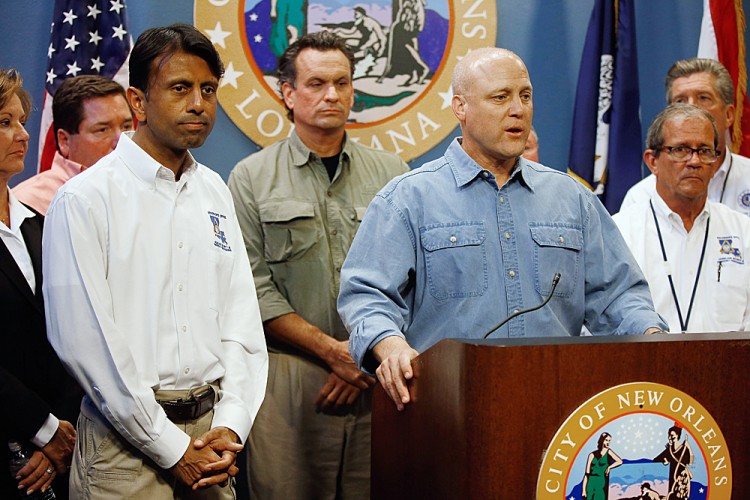Tropical Storm Isaac is likely to become a hurricane by early tomorrow, but storm surges and flooding already pose a significant threat, federal authorities warned Monday.
Isaac was downgraded from a hurricane Sunday, but its size and slow pace could bring disaster to northern states of the Gulf of Mexico, Craig Fugate, director of the Federal Emergency Management Agency (FEMA), told reporters in a telephone press briefing.
“There are some aspects of this storm that are very concerning particularly storm surge and ... now potentially heavy rainfalls across the area of impact,” Fugate said.
As of 8:00 p.m. Monday, Tropical Storm Isaac was around 200 nautical miles southeast of the mouth of the Mississippi River and strengthening, as it heads northwest at around 10 mph, the National Weather Service reported.
Wind gusts of up to 86 mph were recorded, and the storm is predicted to become a hurricane later tonight or early Tuesday, slowing down as it hits landfall late Tuesday or early Wednesday, the report said.






